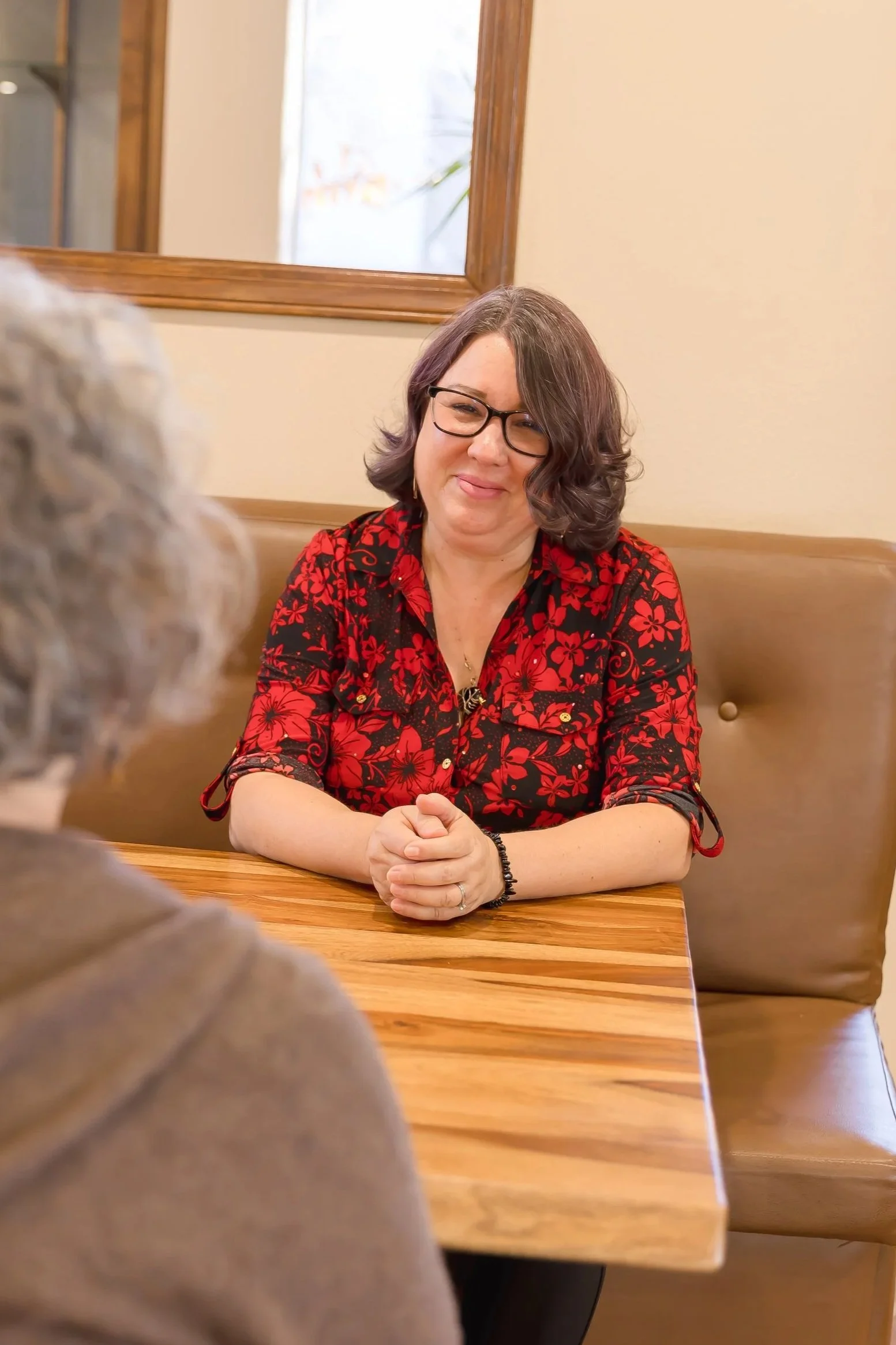
Psychotherapy
Our practice offers individual psychotherapy for a range of mental health concerns.
Adults, adolescents, and children ages 5 and older
Depression and mood disorders
Anxiety and panic disorders
Trauma and PTSD
Grief and loss
Life transitions and adjustment issues
Relationship difficulties
Self-esteem and identity concerns
Stress management
Behavioral concerns
Whether you're facing a specific challenge or seeking personal growth and self-understanding, we're here to support your mental health journey.
Serving Albuquerque and all of New Mexico with in-person and telehealth options.
What is Psychotherapy?
Psychotherapy, also called talk therapy or counseling, is a collaborative process between you and a trained mental health professional. It provides a safe, confidential space to explore your thoughts, feelings, and behaviors while learning new ways to cope with life's challenges. Therapy can help you understand patterns in your relationships, develop healthier coping skills, and work toward your personal goals.
Different types of therapy work better for different people and problems. Some focus on changing thought patterns, others on processing emotions or past experiences, and some on developing specific skills. Your therapist will work with you to find the approach that fits your needs and goals.
Who can benefit from psychotherapy?
Psychotherapy can be helpful for anyone experiencing:
Persistent sadness, anxiety, or worry
Difficulty coping with major life changes
Problems in relationships with family, friends, or partners
Trauma from past experiences
Grief after losing someone important
Low self-esteem or confidence issues
Feeling overwhelmed by daily stress
Behavioral problems or unhealthy habits
Questions about identity or life direction
A desire for personal growth and self-improvement
What types of therapy do we offer?
Our therapists are trained in various evidence-based approaches:
Cognitive Behavioral Therapy (CBT) Focuses on identifying and changing negative thought patterns and behaviors that contribute to emotional distress.
Trauma-Focused Therapy Specialized approaches like EMDR and trauma-focused CBT to help process and heal from traumatic experiences.
Dialectical Behavior Therapy (DBT) Skills Teaches practical skills for managing emotions, tolerating distress, and improving relationships.
Acceptance and Commitment Therapy (ACT) Helps develop psychological flexibility and align actions with personal values while accepting difficult emotions.
Play Therapy Uses play and creative activities to help children express feelings and work through challenges in age-appropriate ways.
Mindfulness-Based Approaches Incorporates mindfulness and meditation techniques to increase awareness and reduce stress.
What to expect from psychotherapy
Initial Session Your first appointment focuses on getting to know you, understanding your concerns, and discussing your goals for therapy. This helps your therapist recommend the best treatment approach.
Regular Sessions Most therapy sessions are 50 minutes long and typically occur weekly, though frequency can be adjusted based on your needs and progress.
Collaborative Process You and your therapist work together as a team. You'll set goals, track progress, and adjust the approach as needed throughout your treatment.
Confidentiality Everything discussed in therapy is kept confidential, with only a few legal exceptions that your therapist will explain during your first visit.
Homework and Practice You may be given exercises, worksheets, or skills to practice between sessions to help reinforce what you're learning in therapy.
How to prepare for therapy
Think about what you hope to accomplish in therapy
Consider what has and hasn't worked for you in the past
Be prepared to discuss your mental health history and current medications
Bring a list of questions or concerns you'd like to address
Remember that it's normal to feel nervous before your first session
Be patient with the process - meaningful change often takes time
Getting the most from therapy
Therapy works best when you:
Attend sessions regularly and arrive on time
Are open and honest with your therapist
Practice skills and complete assignments between sessions
Give feedback about what is and isn't helpful
Be patient with yourself as you work toward your goals
Communicate with your therapist about any concerns about the therapy process
Remember that seeking therapy is a sign of strength and self-care. Taking this step shows your commitment to improving your mental health and overall well-being.
Meet Our Providers
-
Jennifer Chavez has spent the past 12 years working as a professional and school counselor actively working to obtain additional credentials to provide more research-based supports to clients and patients with varying degrees of trauma.
Prior to her career in counseling, Jennifer was a public school teacher in New Mexico for 17 years teaching elementary and high school. Her passion for assisting people to heal and live more productive and healthier lives is consistent and unwavering.
Personally, Jennifer has grown up and lived in Albuquerque most of her life. She has been married for 25 years. She has four grown children all who work in professional fields such as law, engineering, marketing and medical.
Jennifer has worked both in the public and private sector to include government work on contract in Washington, DC as a grant writer and reviewer with Department of Justice and Department of Education. Her work with EMDR is endorsed by SAMSHA.
Jennifer's hobbies and interests include writing poetry and has created a healing through poetry program, cooking and hiking. She has been working at Neuropsychological Services of New Mexico for a year and is enjoying the medical side of counseling.
Prior, Jennifer spent seven years working with court-mandated programs and taught various court-mandated classes such as anger management and parenting.
-
Dr. McNeil graduated cum laude from Southern Nazarene University, she earned both her Master's degree and Ph.D. from the California School of Professional Psychology, with a particular emphasis on neuropsychology, providing a deep understanding of brain-behavior relationships and clinical assessment techniques.
Following her doctoral studies, Dr. McNeil completed a post-doctoral fellowship at the University of Michigan focusing on spinal cord injury research.
Her clinical specialty areas encompass a broad spectrum of neuropsychological testing and assessment. She has extensive experience evaluating and diagnosing conditions such as traumatic brain injury (TBI), acquired brain injury, dementia, attention deficit/hyperactivity disorder (ADHD), and learning disabilities.



